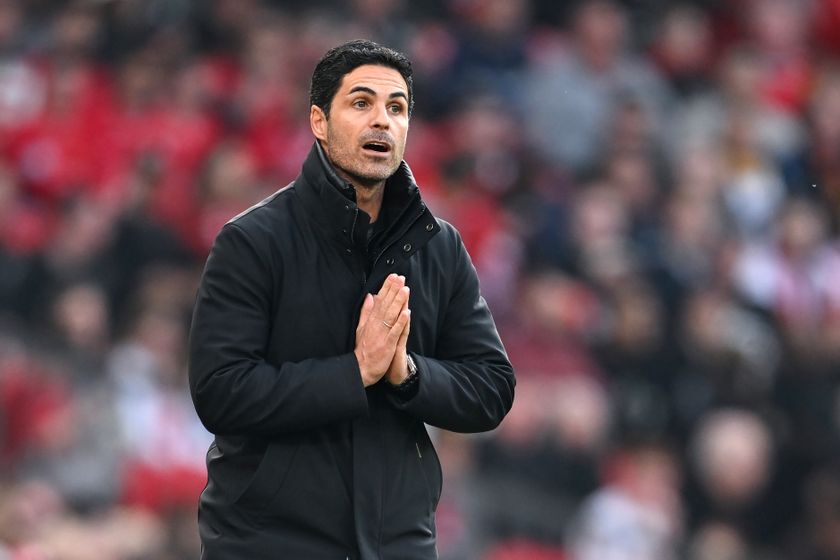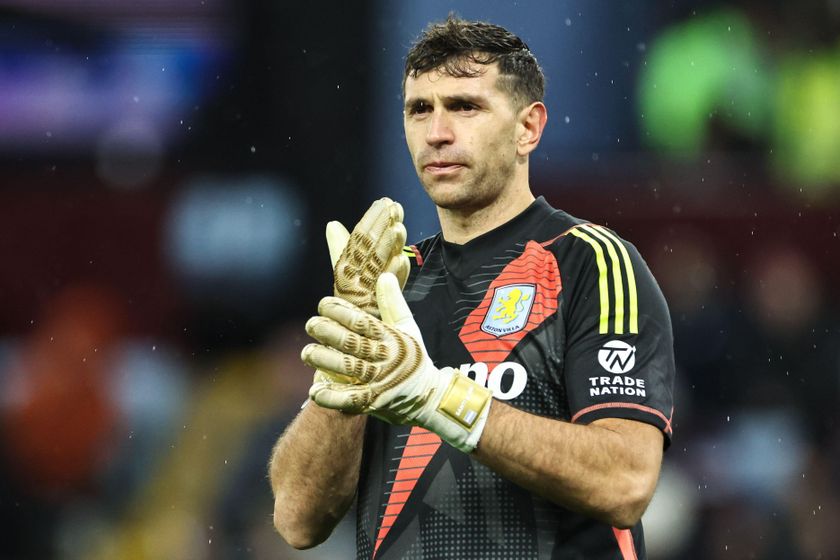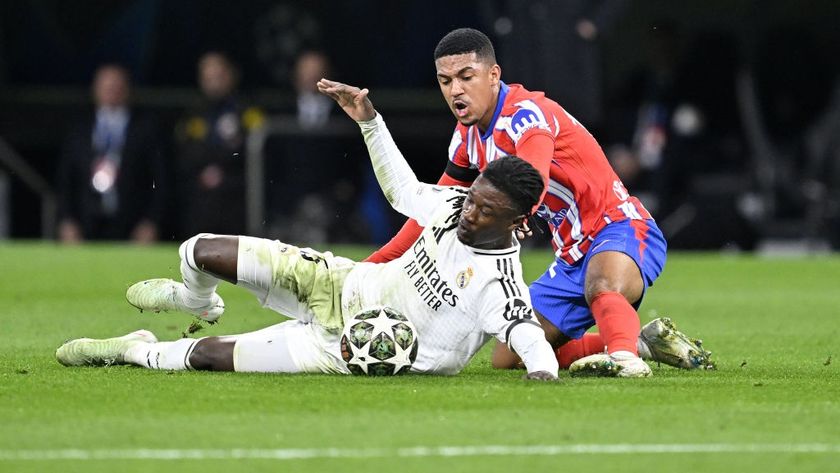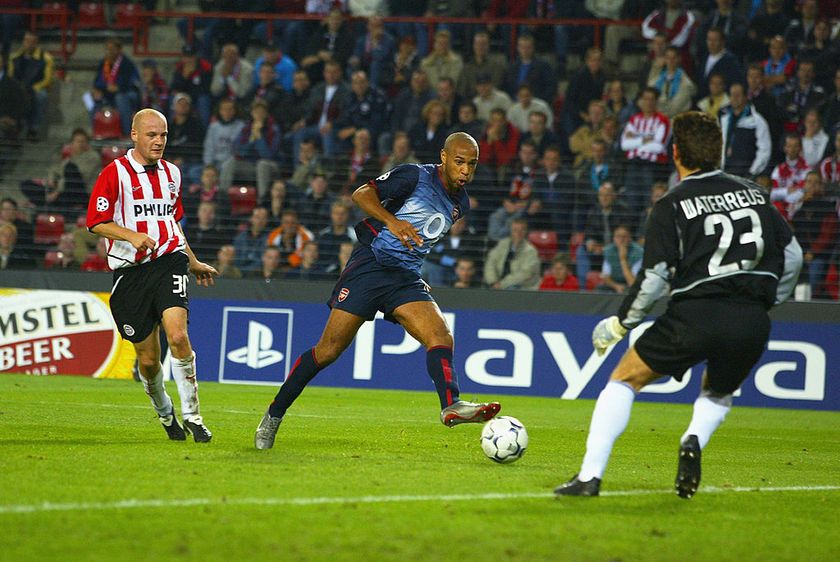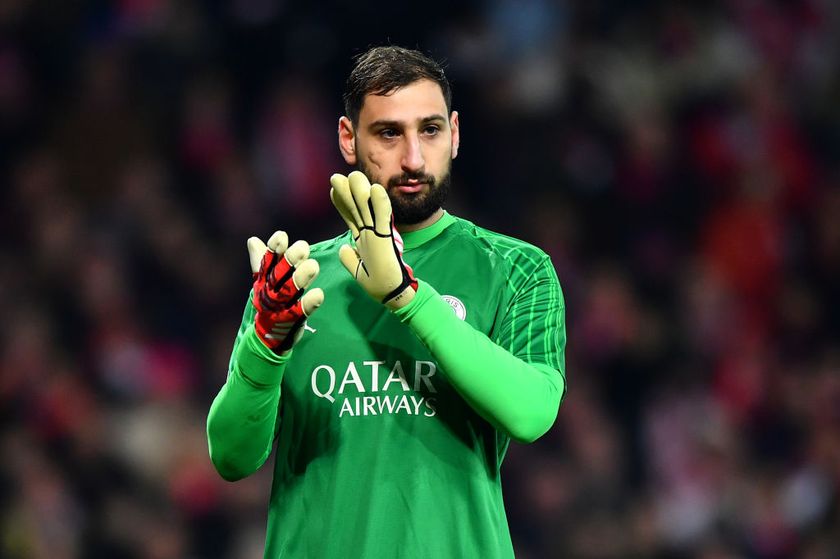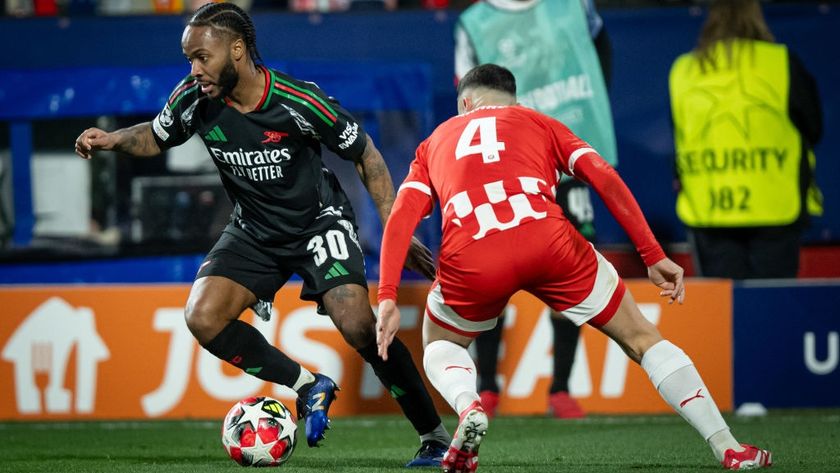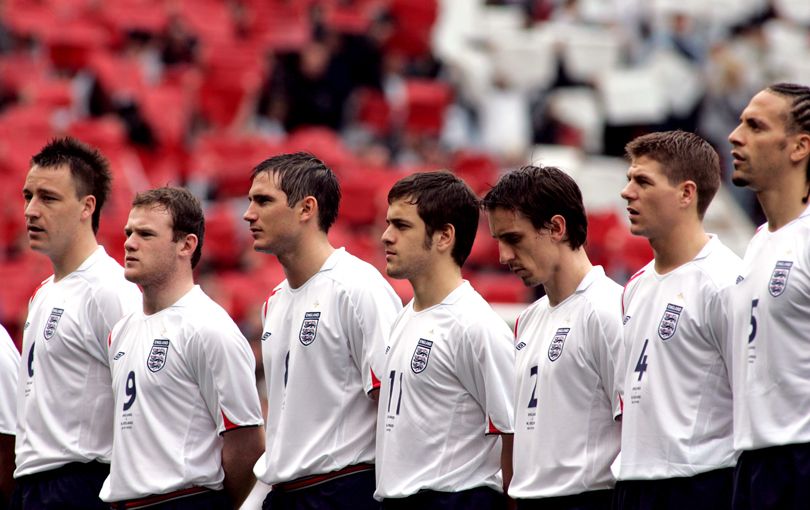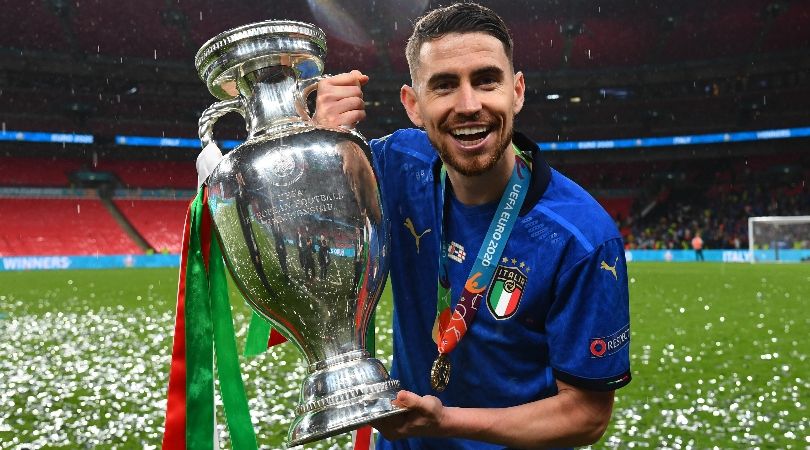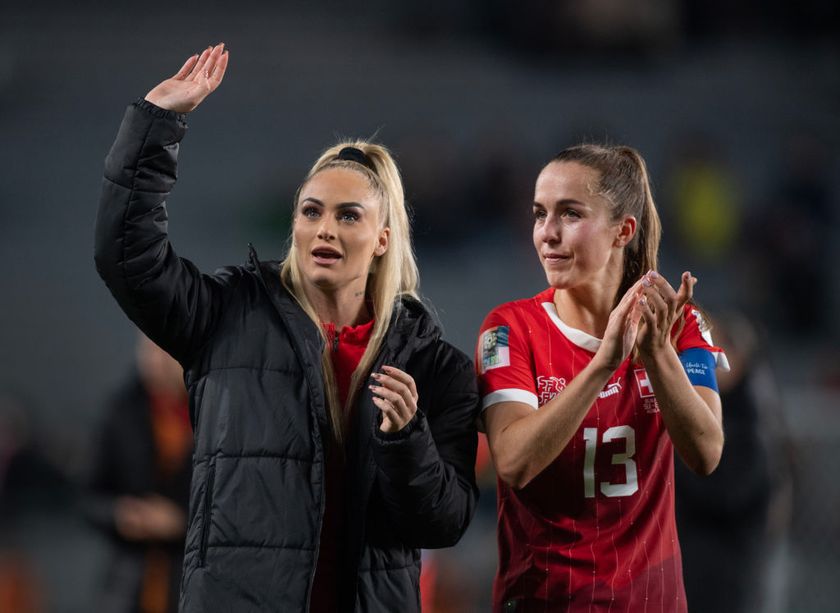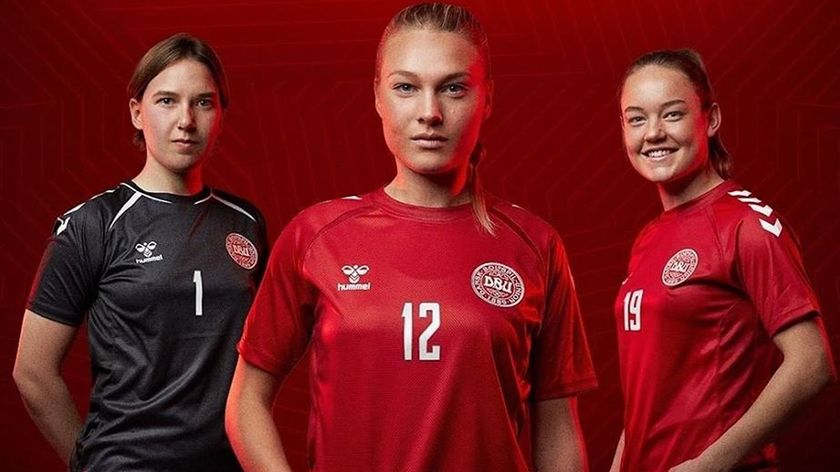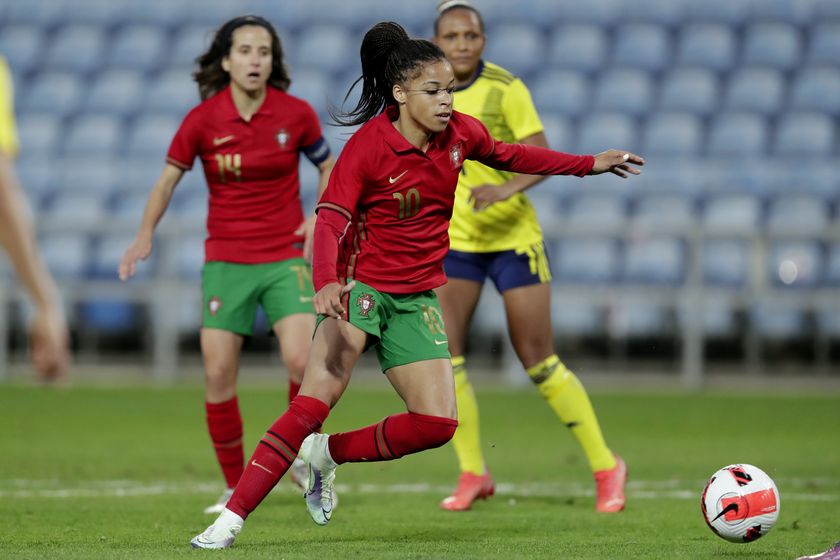Didier Drogba's last dance: How Chelsea's talisman delivered the Champions League
Didier Drogba knew that the 2012 Champions League Final was his one chance to win Europe’s top prize before the Blues’ stars were split up. In an astonishing season of turmoil at Stamford Bridge, that waltz to glory never looked likely – and yet...
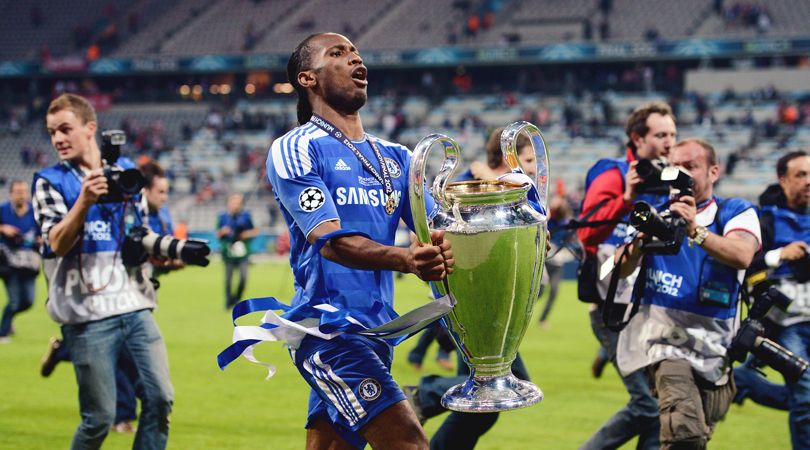
Andre Villas-Boas turned to every Chelsea player and asked the same question. One by one, they all gave an identical answer. Until it came to Didier Drogba.
The previous day, the Portuguese manager had gathered together his senior pros, after a home defeat to Liverpool – Chelsea’s third in four Premier League games – left them fifth in the table. He had worked with Drogba, John Terry, Frank Lampard and Petr Cech during his days as Chelsea assistant under Jose Mourinho, and appeared to be taking on board what they said. The advice was clear, particularly from Drogba: Villas-Boas should dial back on the new philosophy that he was trying to impose. It wasn’t working.
Then the boss called a team meeting and doubled down on his own tactical plans. “We have to stick to our philosophy,” Villas-Boas told them, ahead of a group-stage match away at Bayer Leverkusen. “I believe this is how we will win the Champions League.”
Given what Drogba and the other senior players had advised their gaffer 24 hours earlier, it felt like a betrayal; confirmation that their opinions no longer mattered; a hint that he was attempting to take the club in a different direction... without them.
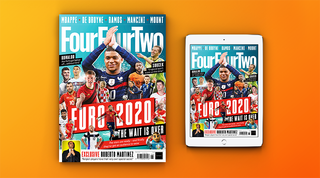
The 33-year-old Drogba had been rotated in and out of the team to make way for Fernando Torres. Lampard, also 33, was another that Villas-Boas – their senior by just a few months – was rumoured to be considering for the exit door. Terry, soon to turn 31, was being investigated by police for alleged comments made to Anton Ferdinand during a recent defeat at QPR. As he brought the team meeting to a close, Villas-Boas had one question for each player. He believed that Chelsea could win the Champions League following his philosophy, but he wanted to know if they did, too. Effectively, he was asking if they believed in him as manager.
Whether they meant it or not, everyone said yes. Apart from Drogba. “I’m sorry, coach, but I don’t believe we can win it,” said the striker.
Chelsea lost 2-1 to Bayer Leverkusen, the hosts’ late winner jeopardising their chances of reaching the knockout phase, and Drogba decided he’d had enough. Days later, before even December had arrived, agent Thierno Seydi told the media that his client would not be signing a new one-year deal at the club. “At Didier’s age, he has nothing left to prove as a player,” shrugged Seydi. “He will go where he is offered the most money.”
Get FourFourTwo Newsletter
The best features, fun and footballing quizzes, straight to your inbox every week.
Since joining forces in 2004, Drogba and Chelsea’s old guard had won three Premier League titles, three FA Cups and two League Cups. Yet the Champions League still eluded them, and now the 2011-12 season would be their eighth and final season together. Drogba may not have had much faith in his coach, but this would be his final chance. This would be the last dance.
July 2004: The pick of the bunch
When Jose Mourinho took over as manager of Chelsea in 2004, tasked with winning the club’s second league title and first in half a century, Roman Abramovich’s riches gave him the pick of world football’s most successful strikers. Instead, he targeted Drogba, a 26-year-old who’d never won a major trophy, had only ever played six games at Champions League level, and hadn’t turned pro until he was 21.
Drogba had been forced at seven years old to leave Europe and return to Ivory Coast due to paperwork issues, having moved to France two years earlier to live with his uncle, a professional footballer with Stade Brestois. When the paperwork finally came through, Drogba didn’t want to go to France again. He had felt homesick in Europe. A few years later, however, both of his parents lost their jobs as the Ivorian economy crashed, and Didier went to France for a second time.
Aged 18, he joined Le Mans in the second division as an apprentice, but a fondness for junk food meant his fitness wasn’t up to scratch. “An African guy will feel strong and untouchable – it’s something you have in your genes,” he later told FourFourTwo. “The danger is that you can be blinded by that confidence. Way too often, I would do things I shouldn’t, diet-wise and fitness-wise, thinking that I wasn’t risking anything.”
CHAMPIONS LEAGUE FINAL 2020/21 Can Sergio Aguero still perform at an elite level post-Manchester City?
A new strict fitness regime led to injuries, before his biggest setback: a fractured ankle and fibula. At that stage, he didn’t know if the club would retain him for a second season. “It was very difficult,” he said, “but even when I suffered a broken leg, I still believed I’d make it to the top.” Le Mans did keep Drogba, then offered him a professional deal at 21, shortly after his first-team debut.
His goalscoring record there was hardly outstanding – 15 in 72 matches – but he impressed enough to earn an £80,000 move to Guingamp in the top tier. There, Drogba blossomed. He netted 21 times in 2002-03 to convince Marseille, the club he supported as a boy, to sign him for £3.3 million.
Drogba scored on his Champions League debut against Real Madrid at the Bernabeu, then bagged a hat-trick at home to Partizan Belgrade. In the third group match, Drogba put l’OM ahead against Mourinho’s Porto. He had gained an admirer. “One day, when I can afford you, I will sign you,” Mourinho told him in the tunnel afterwards.
By the time Mourinho joined Chelsea at the end of that season, Drogba had proved he could thrive against English opposition. He scored twice against Liverpool, then added a brace against Newcastle, as Marseille reached the UEFA Cup final following their elimination from the Champions League.
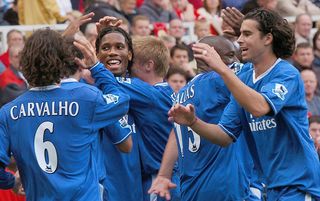
A month after Mourinho’s appointment, Chelsea agreed a club-record £24m deal for Drogba. When the centre-forward arrived at Farnborough Airport, he was greeted by his new boss in French. “You’re a good player,” said Mourinho. “But if you want to become great, you have to play for a great club like Chelsea and you have to play for me.” Drogba later told FFT, “The biggest thing Mourinho brought was his faith in me. When he joined Chelsea, he was given the choice of some of the biggest names in football. But he said, ‘No, I don’t want them. I want Drogba’.”
Drogba didn’t know much about Chelsea, nor their squad. “At training, I noticed a tall guy who looked so young,” he revealed years later. “I assumed he was from the reserves – I thought that they’d brought him in to get a bit of experience. I asked another player who he was. They laughed and said, ‘It’s the captain, John Terry’.”
Installed as skipper after Marcel Desailly’s departure, the 23-year-old Terry and summer arrival Petr Cech, 22, helped the Londoners to concede just 15 goals – still a Premier League record – in Mourinho’s first season. Terry was named PFA Player of the Year while Lampard took the Football Writers’ Association award, having netted the brace at Bolton that sealed the Blues’ first league title since 1955.
Drogba was the spearhead who completed the spine of Mourinho’s feared team. He scored in the League Cup final victory over Liverpool, and bagged home and away against Bayern Munich as Chelsea reached the semi-finals of the Champions League.
Despite all that, Drogba had a feeling of unease, as if he hadn’t completely won over the club’s fanbase. He had scored 16 goals in all competitions, compared to 32 with Marseille the previous season.
RIO FERDINAND INTERVIEW "I was so happy that Edwin van der Sar saved Anelka's penalty in 2008... I was next and wouldn't have scored!"
He plundered another 16 as Chelsea won the Premier League title again in 2005-06, but suffered mid-season heartbreak with Ivory Coast in the Africa Cup of Nations final against Egypt, missing his penalty in the shootout as the host nation secured victory.
Back in England, his mood worsened still when he admitted, “Sometimes I dive” in a post-match interview, sparking a media storm. It hadn’t been exactly what he had meant to say. “Journalists took advantage of my less-than-perfect English,” he told FFT. “There were times when it was tough for me. Some players would have gone under.”
In 2006, Drogba seriously contemplated leaving Chelsea after only two seasons. His wife helped to talk him out of it, before a pivotal moment that summer.
“The guy who convinced me to stay was Frank Lampard,” said Drogba of the man who, six months earlier, had finished second in the Ballon d’Or behind Ronaldinho. “I was having a short family holiday in Marrakesh when I received a text from Frank. I didn’t remember ever being texted by him during the entire two seasons I’d been at Chelsea. It said, ‘Hi DD, I hope you’re staying because we have to win the league together and we have to win the Champions League together’.
“Frank, JT and Petr Cech were players I had a special bond with. Receiving that text was decisive. It felt really powerful. It was proof that I was wanted. I kept that phone for a long time, just to keep that message.
“That was the day that freed me. I went on to be Premier League top scorer that season.”
August 2011: Benched and bemused
The 2011/12 campaign was just one game old when Drogba decided that he needed to speak to Villas-Boas. Having been named on the bench on the opening day at Stoke, he wasn’t happy. Drogba was introduced only for the final 15 minutes as Chelsea drew 0-0.
Drogba had been the Premier League’s top scorer again in 2009-10. In partnership with Nicolas Anelka, he’d helped Chelsea collect a third league title by netting a career-high season tally of 29 league goals, and another career high of 37 in all competitions. He had scored the winner in the FA Cup final against Portsmouth, too – his seventh goal in six domestic cup finals, further bolstering his reputation as the ultimate big-game player.
In 2010-11, however, Drogba had found the net only 13 times in England and Europe. Having struggled through games for a month in mid-season, he had eventually discovered that he’d been suffering with malaria. Then Chelsea had spent £50m on Fernando Torres in January, and the partnership just hadn’t worked – between then and the season’s end, Torres had scored just one league goal and Drogba only two. Chelsea had finished a distant second to Manchester United, and Carlo Ancelotti was replaced by Villas-Boas.
Drogba had been optimistic about the appointment. They’d had a good relationship during Villas-Boas’ spell as Jose Mourinho’s assistant, staying in touch afterwards. But the dynamic was different now that the No.2 was No.1, intent on putting his own stamp on the club and refreshing an ageing squad.
It wasn’t long until Drogba began to hear worrying noises. “We learned unofficially that he wanted to get rid of a few people – Ashley Cole, Lampard and me,” he later wrote in his autobiography.
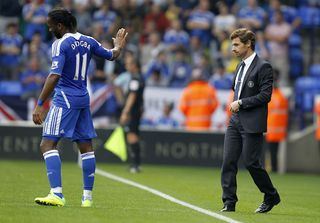
When Drogba was benched for Torres away at Stoke, he spoke with Villas-Boas. “He told me that as pre-season had progressed, he’d decided Nando was better at everything,” wrote Drogba. “I said, ‘No, I don’t think so. If you want to be honest and fair, the best in pre-season was Nico [Anelka] – not Nando, not me’. I asked him to be honest with me and tell me where I stood. He avoided giving me a clear answer. That was an answer of sorts, I suppose.”
The striker was left dejected as he rotated in and out of the side, while Villas-Boas tried to instil his philosophy by building attacks from the back. By October and November, things weren’t going to plan.
Drogba was one of two Chelsea players sent off in the first half of their 1-0 defeat to QPR, a match marred by the confrontation between Terry and Anton Ferdinand. A police investigation followed, and Terry was charged with using racist language. The Blues then went down 5-3 at home to Arsenal, scraped past Steve Kean’s Blackburn and lost at Stamford Bridge again, to Liverpool this time, while team meetings exacerbated tensions between Villas-Boas and some of his players.
With Drogba out of contract at the season’s end, his agent revealed that he had rejected a new deal. The club, adhering to its policy on players aged over 30, had offered only one extra year. His future was still to be resolved, but it wouldn’t be at Chelsea. “It could be the United States, Russia, Qatar or somewhere else in Asia,” said his representative, Seydi.
In the Champions League, defeat at Bayer Leverkusen had left Chelsea needing a result at home to Valencia in their final group-stage tie to avoid elimination. Drogba scored twice in a 3-0 win, but had been irritated that week when Anelka and defender Alex were banned from training with the first team. Both had made transfer requests and been told that if they didn’t want to be there, they could leave.
Anelka had interest from China – and soon, so did Drogba. He could leave immediately, and he was interested.
NEWS Chelsea and Man City fans condemn UEFA ‘greed’ over Champions League final
“Remember what you said about players who weren’t happy? I’ve got an offer,” he told Villas-Boas. Fearing a paucity of striking options, his manager went on the back foot and urged the Ivorian to delay a move.
Drogba did depart in January, but for the Africa Cup of Nations. It ended in another crushing disappointment. As in 2006, Drogba missed a penalty as Ivory Coast lost the final, shocked by Zambia just as they looked set for a first continental triumph in 20 years.
He returned to a club even deeper in crisis than the one he’d left. Terry had learned that his court case wouldn’t be resolved until the summer; he was acquitted in July but the FA felt compelled to act in the interim and stripped him of the England captaincy, which prompted Fabio Capello to resign. And while Drogba was on international duty, his club drew with Norwich and Swansea, let a 3-0 lead slip at home to Manchester United, then produced the worst display of Villas-Boas’ tenure in a feeble loss at Everton. Chelsea had won two of their last 10 league games. A team meeting turned into a row, with Ashley Cole reportedly telling the manager, “I came here to win medals and trophies – I’m never going to do that with your tactics.”
“The players don’t have to back my project – it’s the owner who backs my project,” said Villas-Boas to the press. “My authority is total because it’s the owner’s authority as well. Two players have departed, and more will depart in the future.”
Days later, Chelsea travelled to Italy for the first leg of their Champions League last-16 tie against Napoli. Drogba started, but Cole was left out of the line-up. So was Lampard. Chelsea lost 3-1 – and it could easily have been 4-1, had Cole not produced a brilliant goal-line clearance after coming on as a substitute for his own replacement, Jose Bosingwa.
Afterwards, Lampard said his relationship with Villas-Boas had deteriorated: “From the outside, you can probably see it’s not been ideal... There have been certain issues.”
Few gave Chelsea any hope that they could overturn a two-goal deficit in the second leg.
May 2008: The slap
Drogba’s Champions League dream had been shattered time and again during his journey with Chelsea. Never had he felt so alone than in Moscow in 2008 – watching on from the tunnel, helpless, as glory was snatched away at the final moment.
That season, Drogba had faced the devastation of Mourinho’s departure. “Chelsea without Jose Mourinho? I don’t even want to think about it,” he’d previously told FFT. When it happened, Drogba sobbed as the pair hugged to say goodbye. The striker went to see Roman Abramovich, asking why the change had been made, before casting doubt over his own future in an interview with France Football.
Despite the upheaval, Chelsea reached the Champions League final for the first time, under Mourinho’s replacement, Avram Grant. Drogba scored twice as the Blues finally overcame Liverpool in the last four, following two previous semi-final defeats to Rafael Benitez’s side – beaten by the ghost goal in 2005, then on penalties in 2007.
This time, victory included a poignant goal for Lampard, days after the death of his mother. In Moscow for the final, Drogba also battled emotional turmoil. His grandmother had been admitted to hospital and didn’t have very long to live. “During the game,
I couldn’t concentrate,” he later confessed. Lampard equalised in the final against Manchester United, but Drogba became frustrated at being left on his own upfront, and confused when Anelka was brought on as a winger, not a strike partner. Later in extra time, Drogba snapped and slapped Nemanja Vidic. He was the first player ever to be sent off for violent conduct in a European Cup final. “The walk back to the dressing room was so incredibly long,” he said. “It was horrible. I knew I was responsible for this.”
By the time the shootout started, Drogba had returned to anxiously peek out from the tunnel. A year and a half after fracturing his skull in a match against Reading, Cech saved from Cristiano Ronaldo and looked set to be the hero. But without Drogba, Terry had to take the fifth penalty. He missed – and so did Anelka in sudden death. Manchester United, not Chelsea, were champions of Europe.
“I went straight back to the dressing room and sat there on my own, trying to wake up from this nightmare – realising there was nothing to wake up from and it was really happening,” said Drogba. “Abramovich came in with his young son, who was nine or 10, and the boy was crying and crying. When everyone started coming back to the dressing room, a few people came over to me, asked me what happened and how I was doing.
I just said, ‘It’s OK, it’s too late, it’s too late’.”
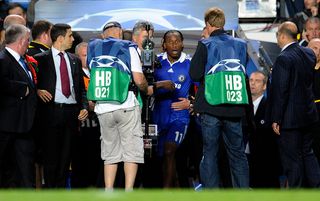
It would be the first of three successive seasons that Drogba’s Champions League dream ended in ignominious fashion. His desire to win the competition was so great that his emotions became uncontrollable when the chances of it actually happening were under threat.
In 2009, Chelsea were within touching distance of eliminating Pep Guardiola’s Barcelona in the semi-finals to halt what is now regarded as possibly the greatest club side in history, in their finest season of all.
The Blues had already seen three penalty appeals turned down at Stamford Bridge when Andres Iniesta smashed home the stoppage-time goal that took Barça into the final. When a fourth appeal was denied in the closing seconds, Drogba flipped. He berated Norwegian referee Tom Henning Ovrebo at the final whistle before turning his attention to the television camera, screaming, “It’s a disgrace! It’s a disgrace! It’s a f**king disgrace!” as interim boss Guus Hiddink awkwardly tried to usher him away. Drogba was later suspended by UEFA.
“It wasn’t a good example for youngsters watching – I know that,” Drogba told FFT. “I learned from what happened that night. It won’t happen again, that’s for sure.”
The next year, Chelsea faced Mourinho’s Inter in the last 16. Heading for a 3-1 defeat on aggregate, Drogba was dismissed for an alleged stamp on Thiago Motta. For three years in a row, he started the following Champions League campaign with a ban.
When Chelsea lost to Manchester United in the 2010-11 quarter-finals, their hopes
of winning the competition seemed to be slipping further away. For years, they’d had one of the best teams in Europe, but had never quite secured the Champions League. Now, their stars were past their peak and even their Premier League form was starting to decline. Had Chelsea missed their chance?
March 2012: Old boys strike back
Before the second leg of Chelsea’s last-16 meeting with Napoli in March 2012, Drogba addressed the squad.
A 1-0 defeat at West Bromwich Albion 11 days earlier had proved the last straw for Abramovich: Andre Villas-Boas no longer had the support of his club’s owner. The young Portuguese manager was out, and replaced by assistant Roberto Di Matteo.
Under the new boss, senior players were quickly allowed to reassert their status in the dressing room and lead from within. “I could have left in January,” Drogba told the team. “But I’m still here. Why? Because I believe we have a chance to win the Champions League. I will do everything to win it.”
When Napoli arrived at Stamford Bridge, Chelsea took them by storm. The Londoners surged 3-1 up to level the tie on aggregate, and their goalscorers couldn’t have been more appropriate: Drogba, Terry, Lampard. The old guard had been resurrected and had unfinished business. Drogba set up Branislav Ivanovic’s winner in extra time.
The Ivorian played only two minutes of the quarter-final against Benfica, having been left out for Torres in both legs. But Drogba was appreciative of greater communication from Di Matteo, who kept him informed if he was unlikely to start – the striker had turned 34 by this stage. Most important of all, the Blues won both legs.
It earned them another semi-final with old foes Barcelona. It was a game for Drogba, who wanted revenge. Guardiola’s side had 72 per cent possession in the opening leg at Stamford Bridge, and completed 743 passes to Chelsea’s 169. Alexis Sanchez and Pedro hit the woodwork, and Cesc Fabregas had an effort cleared off the line as Barça fired in 24 shots. “I was playing like a midfielder, they were pressing us so much,” said Drogba. “We had one chance, and one chance only.”
Just before half-time, Lampard robbed Lionel Messi and started a counter-attack that ended with Drogba sweeping the ball home. Somehow, Chelsea triumphed 1-0.
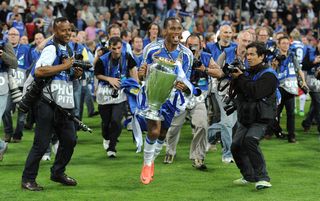
The return leg was more one-way traffic. Barça had another 22 shots – and this time, the Blues couldn’t hold out. Sergio Busquets opened the scoring at the Camp Nou, then Terry was sent off for kneeing Sanchez in the back. When Iniesta put Barcelona ahead on aggregate, 10-man Chelsea looked doomed.
However, things turned on a sixpence when Lampard’s brilliant reverse pass played in Ramires for a sumptuous chipped goal against the run of play, giving Chelsea the advantage on away goals. During half-time, they discussed reorganisation. “I can play
at left-back if necessary,” offered Drogba. “We don’t need a striker. I’ll play striker and left-back, whatever it takes.”
He was in the left-back position early in the second half when his striker’s attempt at a sliding tackle brought down Fabregas for a penalty. Luck was on Drogba’s side: Messi cannoned his spot-kick against the bar. “Maybe the gods were looking down on us,” reflected Drogba. Barça couldn’t find a way through, and substitute Torres sealed a remarkable aggregate victory for Chelsea.
Di Matteo’s side knew they’d need similar tactics – and luck – in the fifinal. They were playing Bayern Munich, in Munich. However, it didn’t daunt Drogba, who’d scored home and away to beat Bayern in 2005. He headed into the European showpiece after yet another FA Cup fifinal goal, in a victory over Liverpool.
No fewer than seven players from the two teams were suspended for the Munich final, and Chelsea found it tough without Terry, Ivanovic, Ramires and Raul Meireles. Bayern rattled in 34 shots and racked up 20 corners. Thomas Muller finally broke the deadlock in the 83rd minute. “For me, that was it,” said Drogba. “Game over. The end of our dream.”
At the restart, Juan Mata sensed the striker’s despondency. “Didier, you have to believe,” insisted the Spaniard. With two minutes remaining, Chelsea won their one and only corner of the match. Mata crossed and Drogba climbed highest at the near post, directing a bullet header into the net.
The striker had rescued Chelsea – but in extra time, he undid his hard work. Just as he had in the semi-final, Drogba conceded a penalty, by clumsily tripping Franck Ribery. The spot-kick-taker would be his former Blues club-mate, Arjen Robben. “He’s a good friend, so we put psychological pressure on him,” Drogba later revealed. “We said, ‘Arjen, you’re a Chelsea player – you can’t do this! We know where you’re going to shoot.’”
Cech saved Robben’s penalty. The match ended 1-1, and Chelsea’s dreams of winning the Champions League for the first time in their history came down to another shootout.
Drogba had experienced shootout defeats so many times before: against Manchester United in Moscow; against Egypt and Zambia in Africa Cup of Nations finals; at Liverpool in a Champions League semi-final; at home to Everton in the FA Cup; against Charlton, Burnley and Blackburn in the League Cup; against Amiens and Angouleme in the Coupe de France; and against Nantes and Chateauroux in the Coupe de la Ligue. Won three, lost 12. It was an appalling record.
Mata stepped up to take Chelsea’s first penalty... and hit it straight at Manuel Neuer. It was happening again. But David Luiz kept the Londoners in it and then, just as in Moscow, Lampard took Chelsea’s third penalty and scored. And, just as in Moscow, Ashley Cole took Chelsea’s fourth penalty and scored. Cech saved from both Ivica Olic and Bastian Schweinsteiger, and suddenly Chelsea were back in the same position they had found themselves in four years earlier. Score their fififth penalty, and they were the European champions. But this time, Drogba – not Terry – was on the pitch to take it.
“I wasn’t nervous,” he later wrote. “I was really sure of myself. It was almost like an out-of-body experience. I made my run-up very short, so Neuer wouldn’t have time to read it. For a brief moment, I contemplated doing a Panenka, but I came to my senses. Instead, I told myself something I’ve been telling myself since I was a boy: ‘If you score, we win. You love being in this position’.”
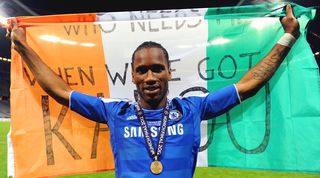
Drogba took two short steps and sent Neuer the wrong way, firing his penalty into the bottom corner. Chelsea were European champions at last. With his final kick for the club, Drogba had achieved everything he’d ever dreamed of.
“This was written a long time ago, but we didn’t know,” he said in the minutes after victory. The perfect script had been signed off with the greatest triumph of all.
For a brief moment during their frenzied celebrations on the pitch that night, Drogba, Terry, Lampard and Cech found themselves together – just as they’d been together in that thorny meeting with Villas-Boas months earlier, and together so many times over the previous eight years. “I thanked them for what they’d done, and told them it had been an honour to play with them,” said Drogba.
Back in the dressing room after the trophy presentation, he addressed the cup. “Why? Why have you avoided us for such a long time?” he asked, listing years of near-misses.
“I spoke about everything we’d had to do, to finally claim this trophy as our own,” he later explained. “Some told me it almost felt like a religious experience. It was my way of making peace with the cup.”
If some people wondered whether Drogba might still change his mind and stay, he confirmed the inevitable after the victory parade in London. The striker gathered the squad together to inform them that he was definitely leaving, breaking down in tears as he tried to get the words out. It was the most incredible end to eight incredible years at Stamford Bridge.
Following spells with Shanghai Shenhua and Galatasaray, Drogba returned for a brief second stint at Chelsea a couple of years later, but by then, Lampard had left the club and was turning out for Manchester City. After the 2011-12 campaign, never again would Drogba, Terry, Lampard and Cech all play together for Chelsea. An era had come to a close, in the most fitting way possible. This had been their last dance.
“It was like a movie,” said Drogba, as he reflected on it all. “And like the best movies, it had a happy ending.”
Subscribe to FourFourTwo today and get a FREE England Euro 96 shirt!
NOW READ
BLUES Why do Chelsea struggle to win after falling behind?
YEAR ZERO The making of Robert Lewandowski (Lech Poznan, 2009/10)
CHAMPIONS LEAGUE 10 European trophy-winning teams who were terrible domestically

Chris joined FourFourTwo in 2015 and has reported from 20 countries, in places as varied as Jerusalem and the Arctic Circle. He's interviewed Pele, Zlatan and Santa Claus (it's a long story), as well as covering the World Cup, Euro 2020 and the Clasico. He previously spent 10 years as a newspaper journalist, and completed the 92 in 2017.
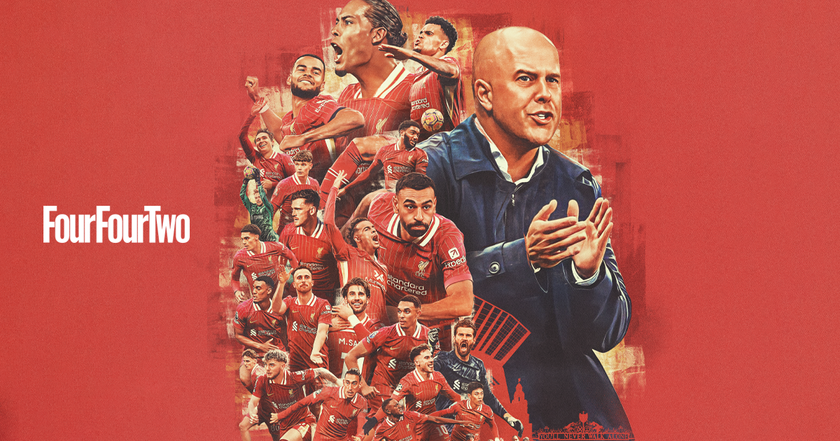
‘If Xabi Alonso had wanted the Liverpool job, Arne Slot might still be in Rotterdam' Respected writer and Liverpool fan Tony Evans provides the inside story of the quest to replace Jurgen Klopp and the shocking factor no one expected
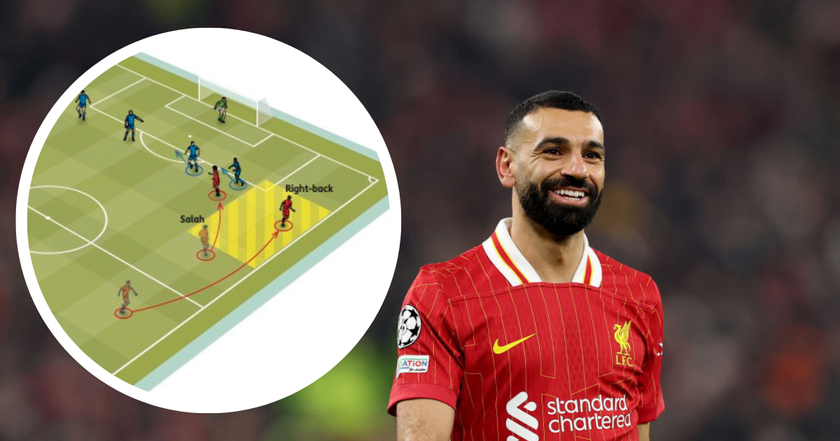
Mo Salah should be slowing down but he's getting better
